Purebred Aberdeen Angus Beef
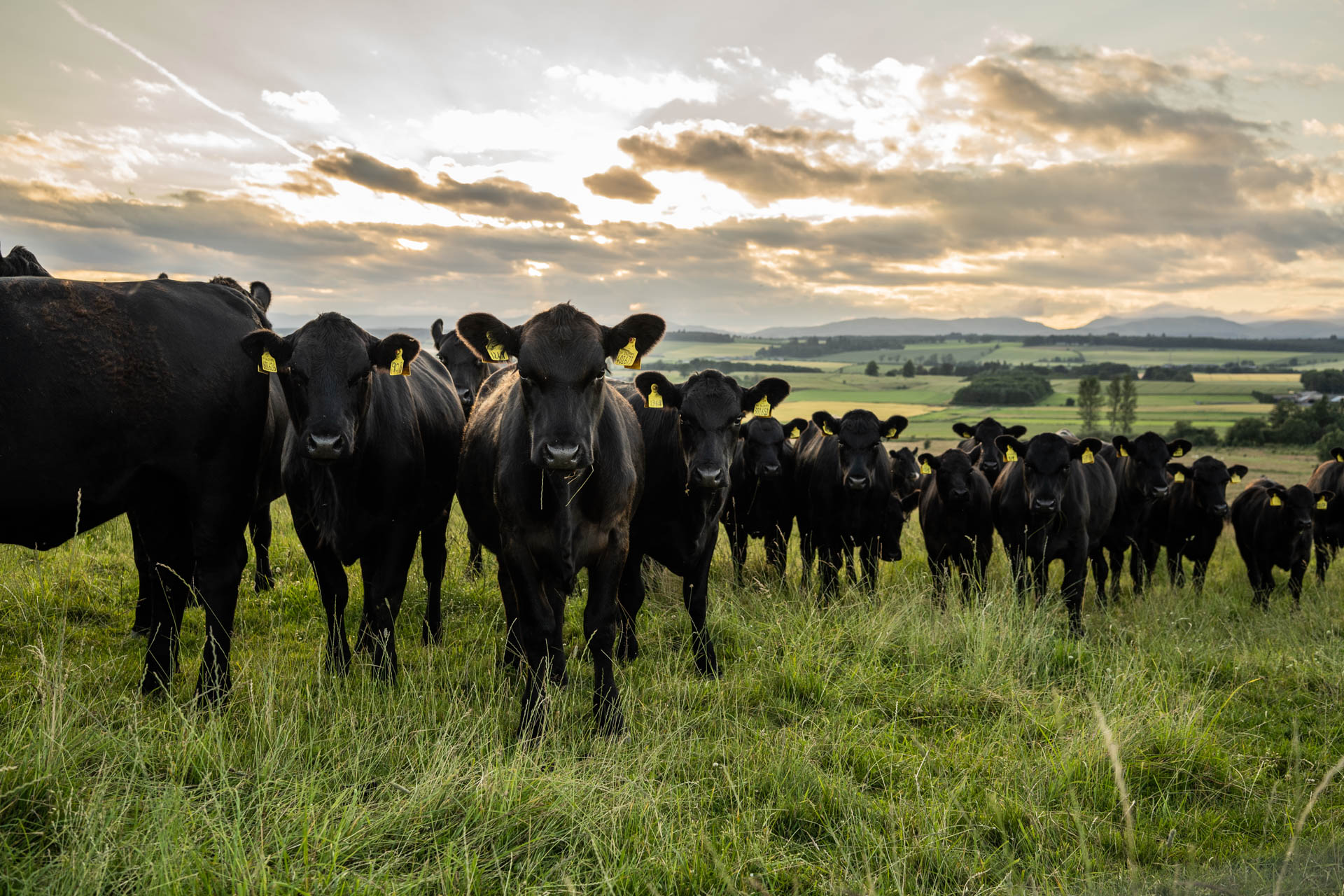
We produce purebred Aberdeen Angus beef at Newmiln.
This helps us to achieve the best meat eating quality and guarantee consistency of our organic beef. The Aberdeen Angus breed is Scotland’s traditional meat breed. It traditionally has fantastic intramuscular fat or marbling through the meat giving our organic beef great flavour, taste and tenderness.
Aberdeen Angus also do well on grass, an important factor in our organic farming system. We grow clover here at Newmiln to build soil fertility in a natural way, with NO artificial fertiliser. Grass fed beef also has been shown to have higher levels of omega 3 fatty acids (the good ones) than grain fed beef.
It’s a more sustainable system to use grassland to feed cattle especially in Scotland where a lot of land is not suitable for growing grain.

Pure Home bred Lamb
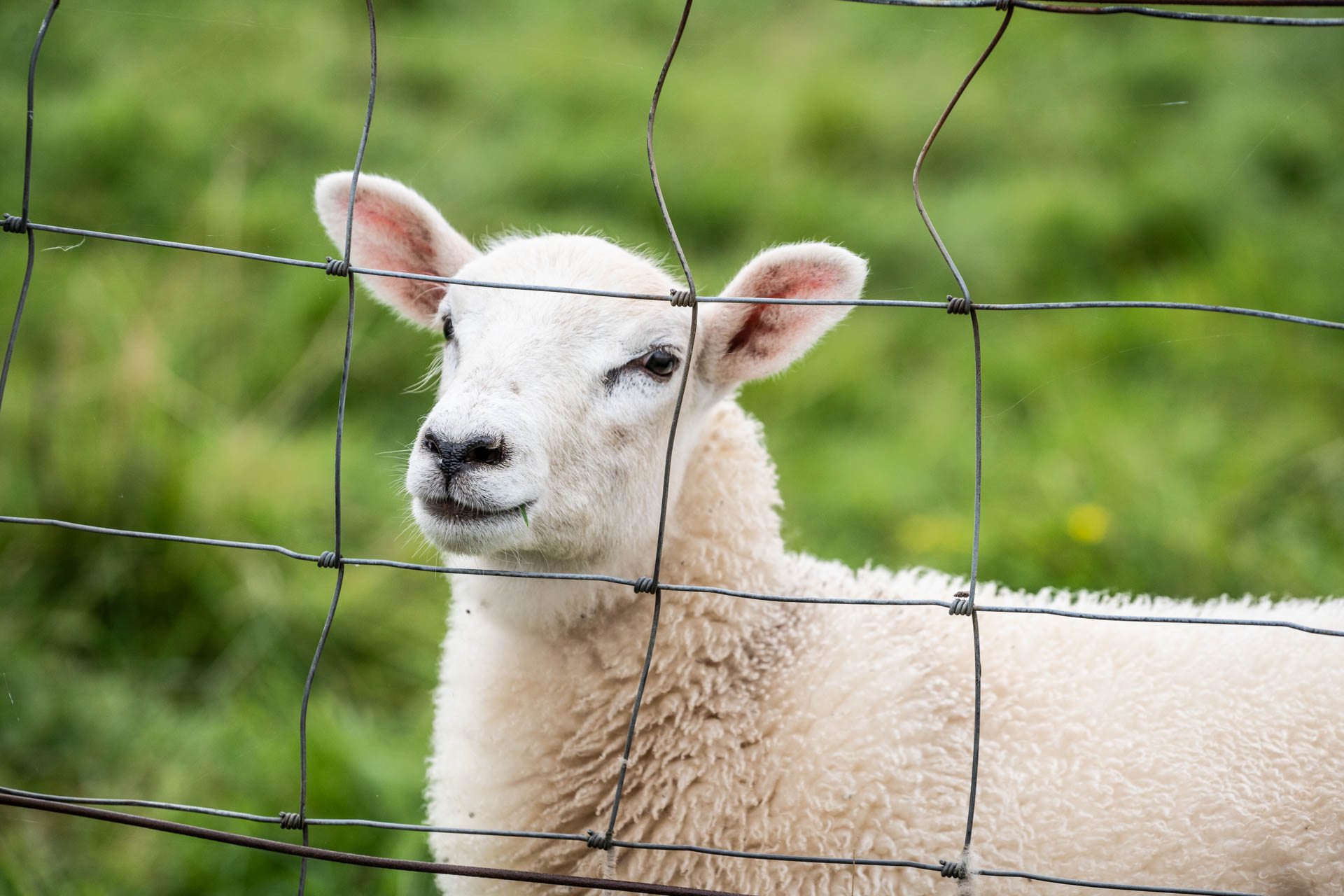
In our sheep flock we are working towards producing good meaty lambs that require the minimum of handling and that thrive outdoors on grass.
It’s important to have animals that don’t need too much handling as this minimises stress for the animal and the workload for us.
We use Easycare ewes (mothers) and cross them with Texel rams (fathers). The Texel breed gives our lamb good meat quality without too much fat. The Easycare ewes are a breed which are able to have their lambs easily in the field, are good mothers, and shed their own wool.

Free Range Chickens
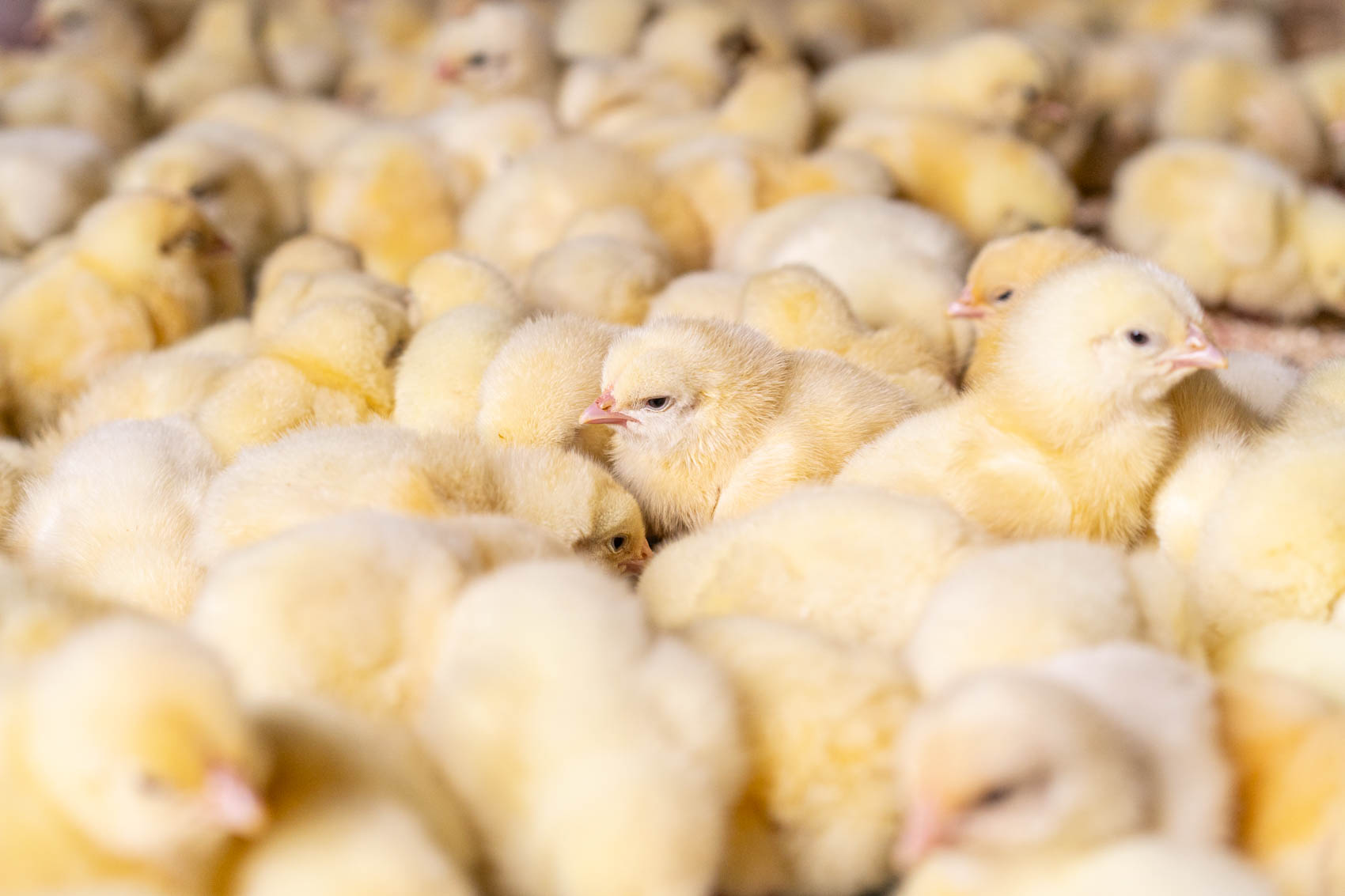
All our organic chicken is home reared on our farm in Scotland.
We only keep small flock sizes so our organic chickens have the freedom to express their natural behaviour and room to move around easily inside their shed.
They go outside to forage on pasture every day and are shut in at night to keep them safe. We keep our organic chicken for twice as long as a conventional chicken giving them time to mature and grow slowly. This gives our organic chickens fantastic taste and flavour.

Pig Farm
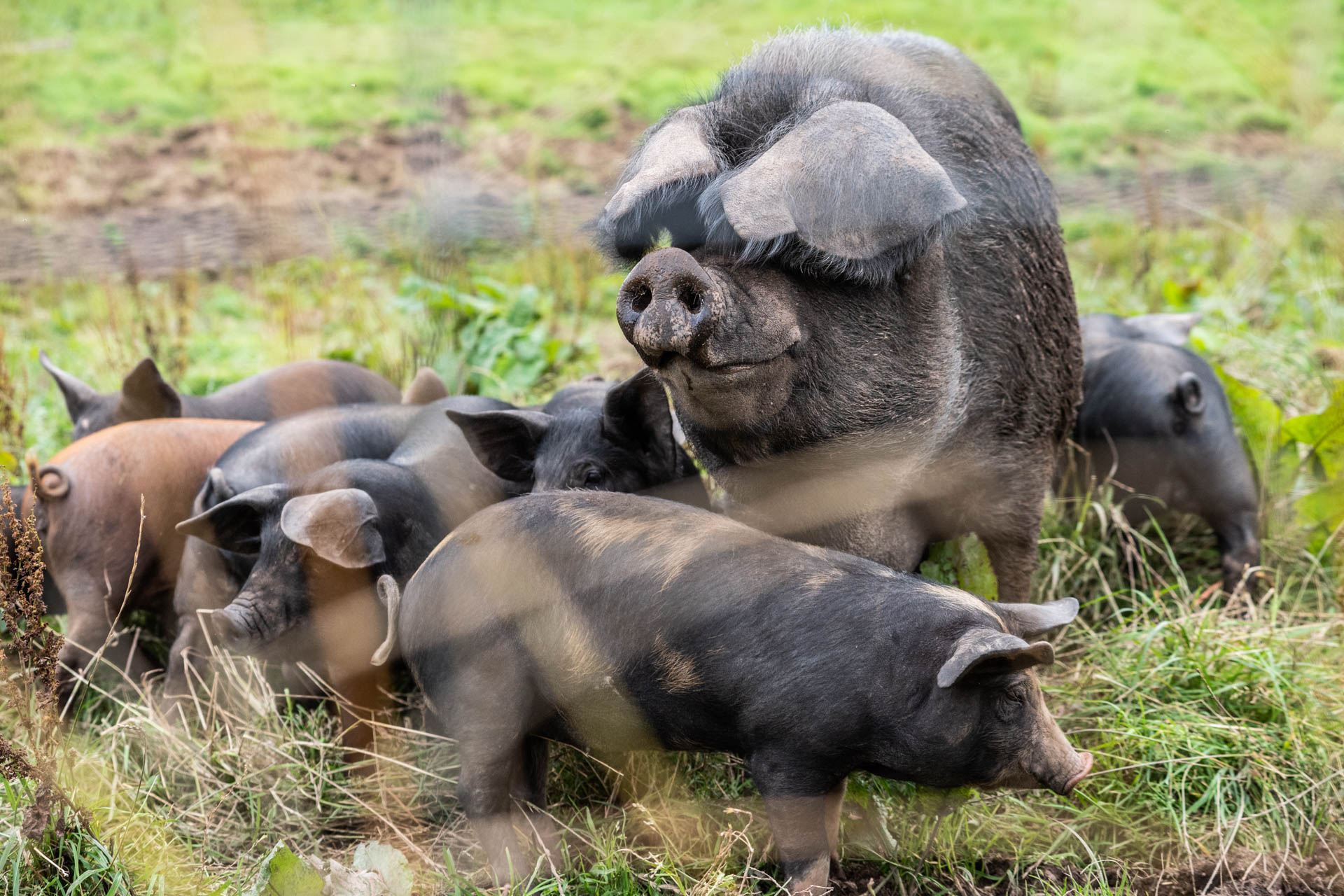
Back in 2009 we became accidental pig farmers.
In order to ensure a good supply of hardy pigs that live outdoors to make great tasting pork and bacon we needed to start rearing them ourselves. We acquired some Berkshire sows and a boar and off we went. It’s not quite that simple but 5 years later here we are with 8 sows producing about 60 pigs a year.
The Berkshire pig is a pork pig designed to grow slowly, thrive outdoors, and produce sweet tasting if slightly fattier pork than you may be used to. They are docile to keep, although they do like to break out into the neighbouring woods and a big hit with school children when they come on RHET School visits.

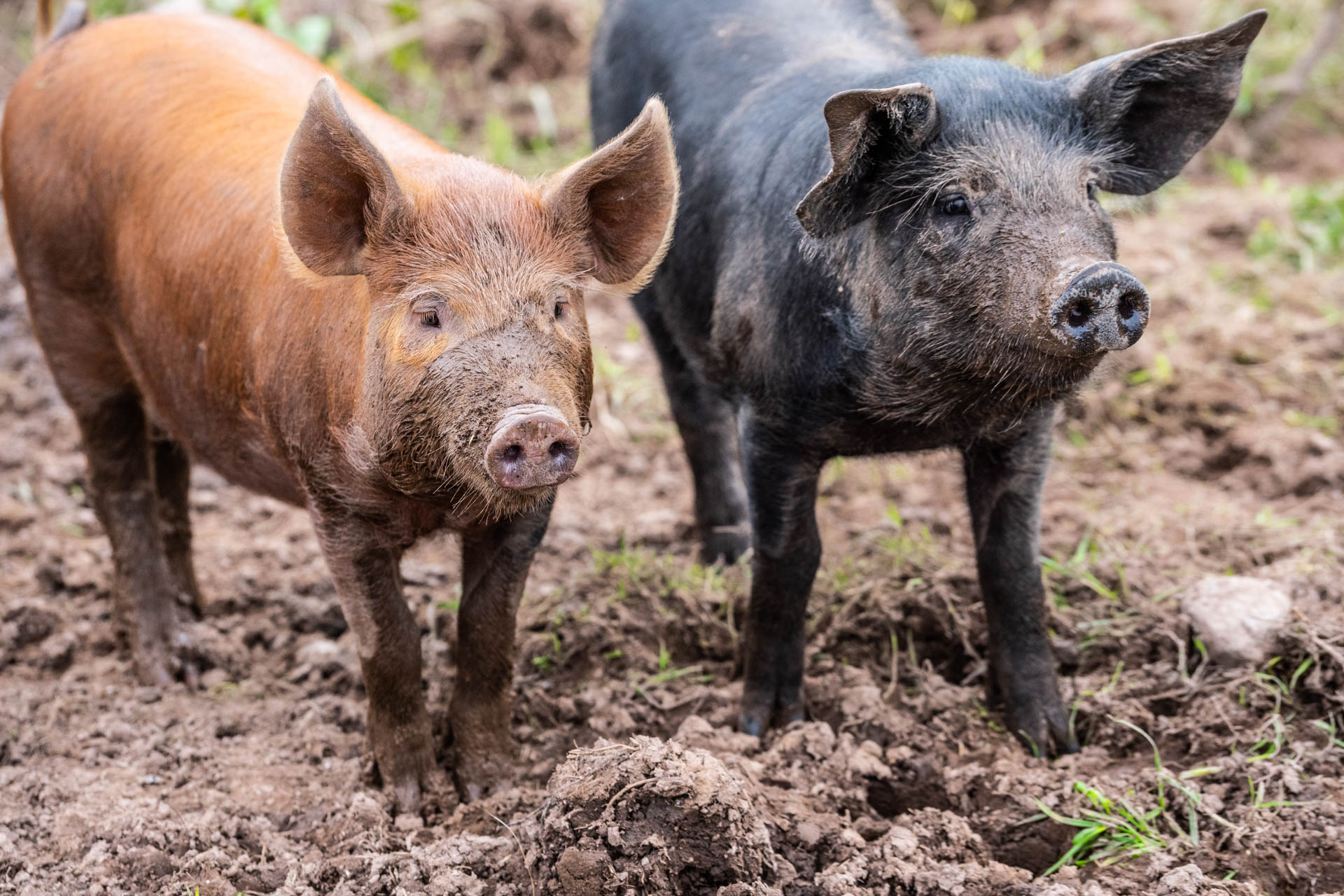
Laying Hens
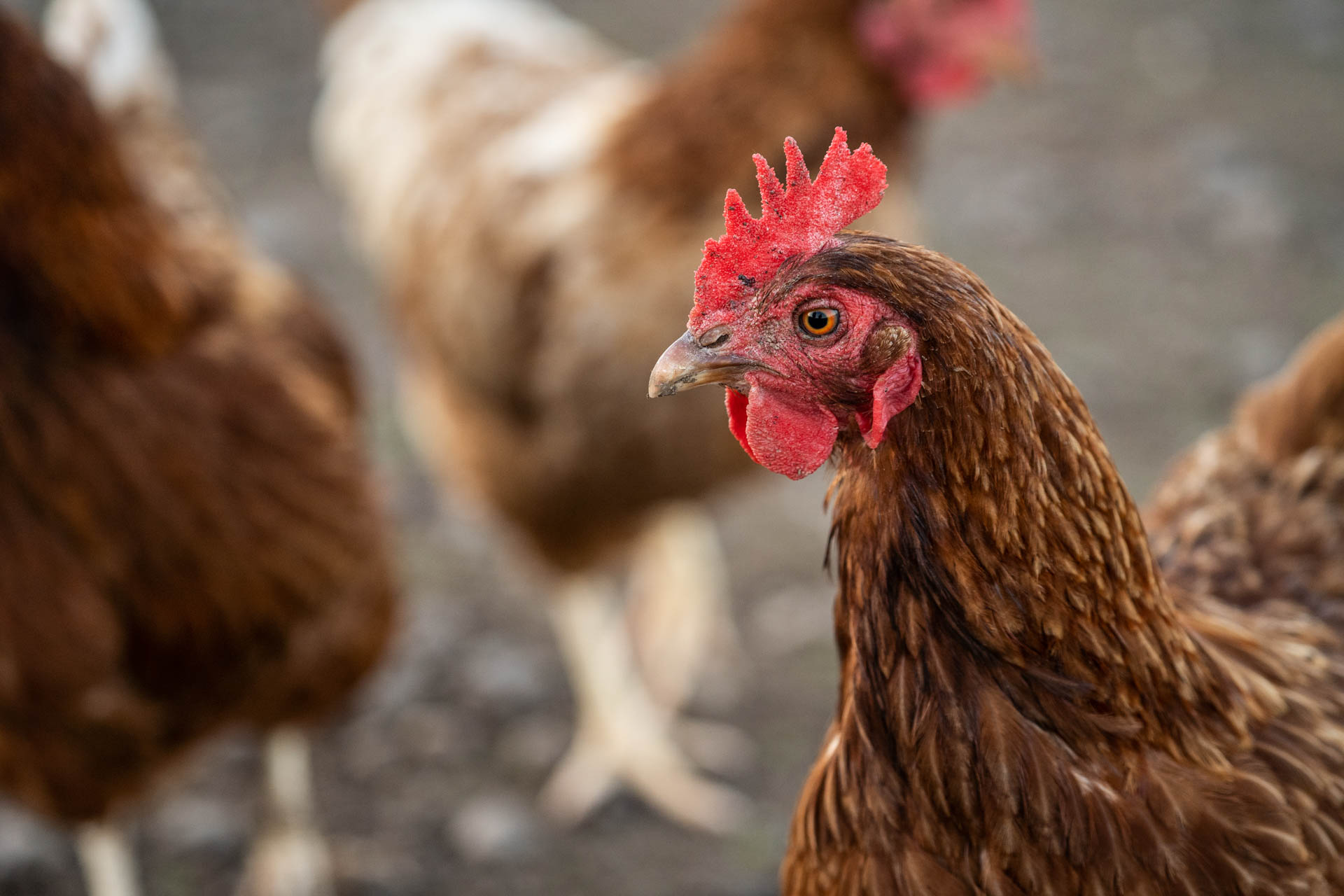
Laying hens are incredible animals.
They weigh at most 2kg but everyday they lay an egg that is 65g of perfect nutrition. It would be like us regrowing a new arm every day. Eggs have been described as the perfect meal. They contain all of the most essential vitamins and minerals and the perfect blend of amino acids and energy for our nutrition. So we look after our hens and they always repay us with wonderful eggs.
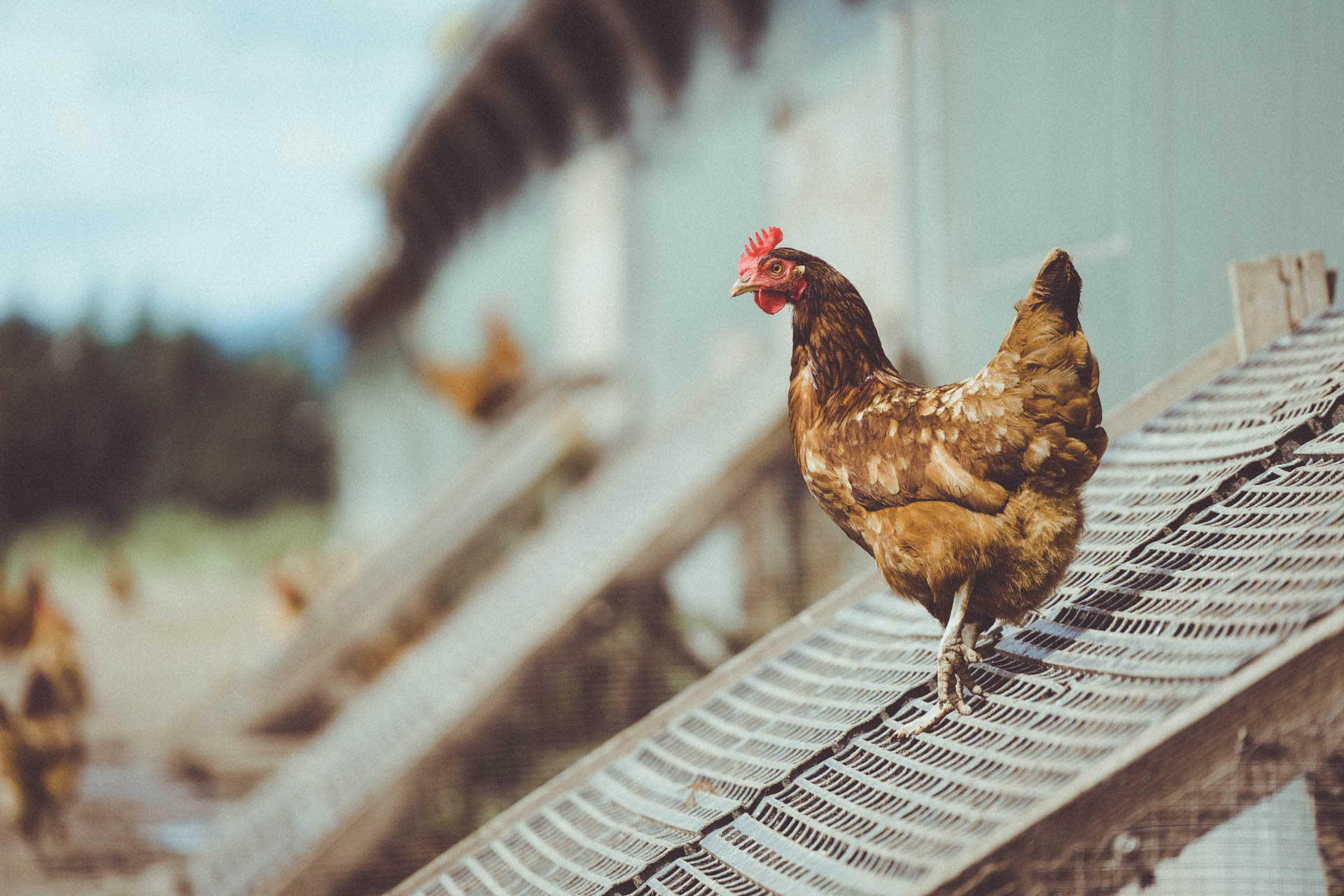
We grow everything on our farm to Soil Association Organic Standards and the hens are no exception. In addition to eating organic feed the organic rules prohibit antibiotics and other unnecessary medicines. Organic regulations also have a strict welfare section which ensures that the organic birds have more space than free range and better access to the grass outside. It would be impossible to keep a hen indoors and call it organic. With correct training this means that our birds really do go out and use the fields around their sheds. They will scratch around in the sun, rain and cold but the one weather that they just hate is the wind. Being so light, they are easily blown around and with that in mind we have begun planting trees in their fields. In years to come this should help them get about even on the windiest days.
The hens are an essential part of our organic system. They provide some of the best muck on the farm which gets spread on the land and built into the soil. This healthy soil grows grass which the cattle and sheep eat to produce our beef and lamb and the cattle and sheep leave their fertility for the crops. We then close the loop by growing our own wheat to feed our hens. This endless recycling of goodness builds a healthy system and allows us to harvest the surplus and eat healthy food. There is no better food than an egg.


